Simple Ways To Use Tea Tree Oil For Dandruff
Say goodbye to dandruff and revitalize your scalp naturally with tea tree oil.
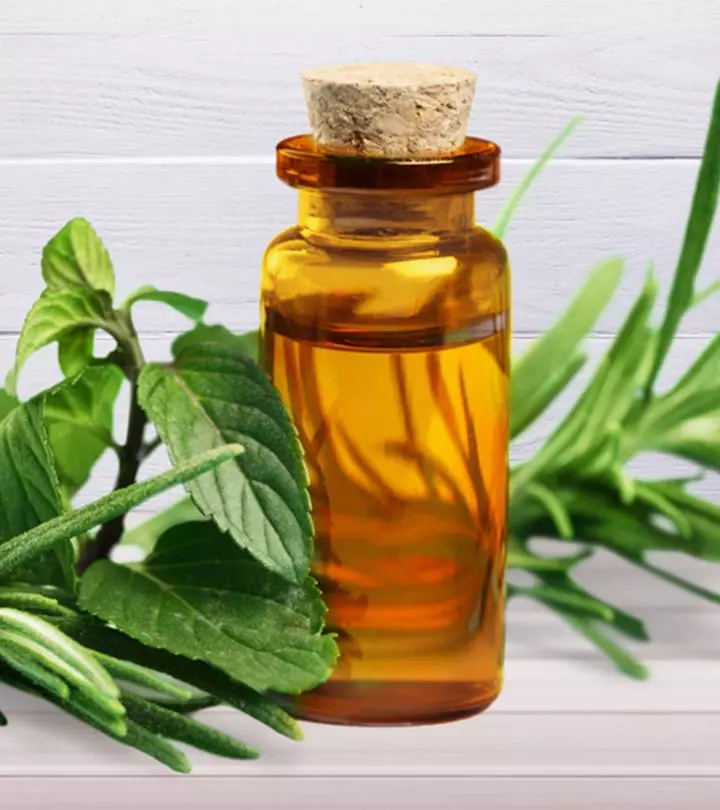
Image: Shutterstock
Using tea tree oil for dandruff has been proven to offer visible results. Many hair care products like shampoos, lotions, shower gels, and massage oils use tea tree oil for the array of benefits it offers. This oil is made by steam distillation of the leaves of Melaleuca alternifolia, a plant native to Australia. The concentrations of tea tree oil vary and are used for different purposes. Tea tree oil is an effective natural remedy for insect bites, minor cuts, nail fungus, acne, and to some extent, it treats dry and dull skin. It may also help manage Athlete’s foot. Read on to know how tea tree oil may manage dandruff.
In This Article
Benefits Of Tea Tree Oil For Dandruff
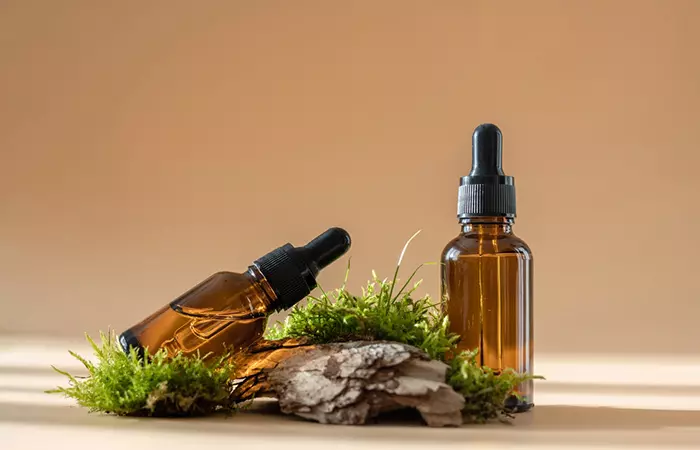
It is generally believed that tea tree oil can help treat dandruff and seborrheic dermatitis. Here are its top two scientifically-backed benefits in this regard:. Here are its top two scientifically-backed benefits in this regard:
1. Helps Reduce The Growth Of Malassezia On The Scalp
Malassezia is a fungus that lives on everyone’s scalp, albeit in small quantities. However, in some cases, this fungus can grow uncontrollably. This can happen due to poor hygiene habits – such as not shampooing regularly – or if you have an underlying medical condition.
According to a YouGov survey conducted in 2020 with a sample size of 5,533 adults in the United States, it was found that 4% of the participants stated that they do not utilize shampoo or conditioner when washing their hair. The majority of these respondents were males (7%) compared to females (1%), and a significant proportion of them belonged to a lower income bracket, specifically earning less than $40,000 annually (8%). Thus, these individuals are at a higher risk of developing a Malassezia infection.
According to a study conducted at the Royal Prince Alfred Hospital (Australia), using a shampoo with 5% tea tree oil is effective for treating dandruff. The study further suggests that tea tree oil shampoo users demonstrated a 41% reduction in dandruff severity as opposed to the ones on the placeboi A treatment or procedure that tricks the body into thinking it is real but has no therapeutic value. (1).
Since tea tree oil is quite potent, you will need to mix it with a carrier oil – like coconut, olive, or almond oil – before applying it to your hair.
2. Reduces Dandruff-Related Symptoms

Anecdotal evidence suggests that tea tree oil can reduce the itchiness, greasiness, and lesionsi Abnormal changes in the tissue of the skin due to a disease or trauma. They can be benign or malignant. that come with the onset of dandruff. It is said to moisturize your scalp, eliminate toxins, and improve blood flow. This may also help relieve itchy scalp conditions like pruritus, which is a common symptom of dandruff. Moreover, it may provide your scalp all the essential nutrients to prevent hair fall, another side-effect of dandruff. However, there is no scientific evidence that proves that this oil efficiently aids scalp health and soothes scalp irritation.
To alleviate these symptoms, you can try a tea tree oil hair mask for dandruff. You can use avocado paste and yogurt as a base and add honey along with a few drops of tea tree oil. Apply this mask and massage your scalp in gentle strokes. Rinse it off after 15-20 minutes.
Tea tree oil is commonly used in aromatherapy to soothe stress, a common cause for most hair issues like hair loss. Aside from using tea tree oil for dandruff and hair loss, you can also apply it to get rid of head lice. A study noted a 100% mortality rate against head lice after applying a 1% concentration of tea tree oil for 30 minutes (2).
Note: Keep in mind to use tea tree oil for head lice in kids only after consulting a doctor.
A blogger shared a positive update regarding her current hair regimen after finding what works best. She had used tea tree oil mixed with a castile soap to address dryness and dandruff issues. She wrote, “I apply the Castile soap mixture (with Tea Tree Oil) to my hair and let it sit for about 3-5 minutes, then I rinse it out. My scalp has been a lot cleaner (i).”
Now that you know all about the benefits of tea tree oil for treating dandruff, let’s check out how to use it.
Key Takeaways
- Tea tree oil can limit the growth of Malassezia on your scalp.
- It can also help eliminate lice, but you should consult a doctor before using it on kids’ scalps.
- According to the National Capital Poison Center, one should not swallow tea tree oil as it can be poisonous.
How To Use Tea Tree Oil For Dandruff?
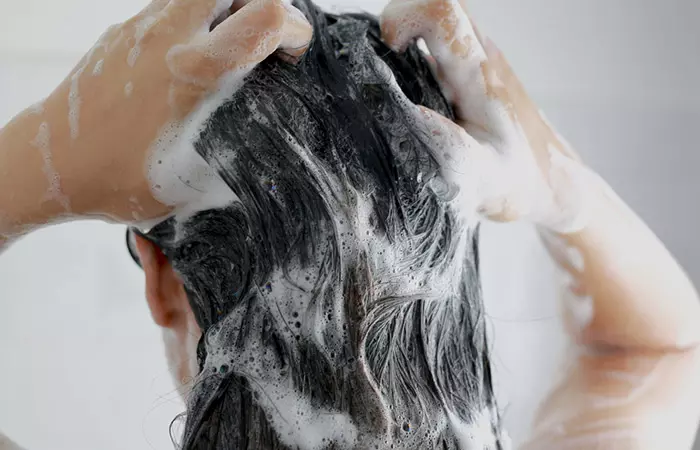
Tea tree oil is one of the most effective essential oils when it comes to treating dandruff. If you are keen on knowing how to use tea tree oil for hair growth and to remove dandruff, here’s a list of its wide-ranging applications:
- Use a ready-made shampoo that already contains 5% tea tree oil.
- If your preferred shampoo does not list tea tree oil as an ingredient, you can add 5-10 drops of the oil to the bottle yourself. Make sure to shake the bottle well. Then, simply massage this mixture into your scalp in circular motions and wash it off with cold water.
Make your own DIY tea tree oil shampoo for dandruff. For this, you will need 1/2 teaspoon virgin cold-pressed coconut oil/oilve oil, 2/3 cups of baking soda, 1/4 cup of filtered water, 1/2 teaspoon vitamin E oil, 1/8 cup of coconut milk, and 20 drops of tea tree oil. Mix all ingredients in a glass jar, shake vigorously, and use a teaspoon of the mixture each time you wash your hair.
Precaution: Avoid using tea tree oil if you have scalp eczemai Inflammation of the skin that causes dry, itchy, cracked, and rough skin. Also known as atopic dermatitis. .
You can store this shampoo for up to a month. Just remember to shake the jar well before use. Also, make sure to use the tea tree oil shampoo for at least four weeks to treat dandruff effectively.
Though tea tree oil is an effective treatment for dandruff, it can cause certain side effects. Find out more in the next section.
 Quick Tip
Quick TipSide Effects And Risks Of Using Tea Tree Oil
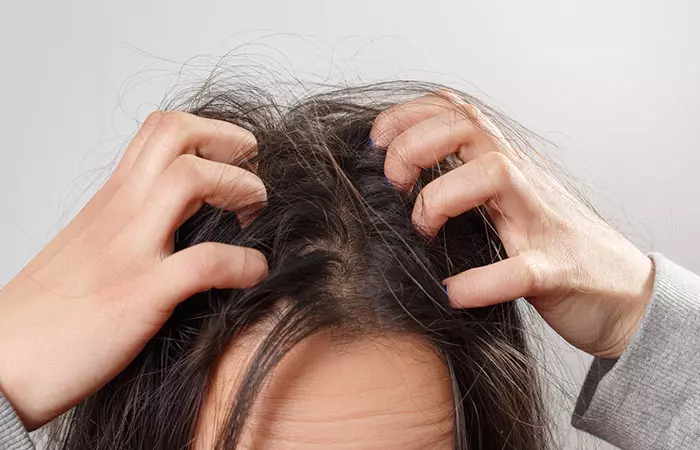
While tea tree oil offers effective relief from dandruff, it is important to understand the potential side effects it may cause. You should use it cautiously to minimize any adverse reactions. Additionally, remember the following pointers:
- Toxic If Swallowed: The National Capital Poison Center claims that tea tree oil can be poisonous if swallowed (3). Hence, avoid using it anywhere near the mouth. Its oral consumption can also cause serious symptoms like confusion, loss of consciousness, and ataxia (loss of muscle coordination).
- Can Cause Irritation/Redness In The Eyes: Take care when using tea tree oil on your scalp to not let it run into your eyes. In case it enters your eyes, make sure to splash warm water and flush it out. If your eye becomes red or irritated, call your doctor immediately.
- Can Cause Skin Irritation Or Scalp Itching: As a thumb rule, avoid using concentrated tea tree oil directly on your skin/scalp as it can lead to irritation like itching, especially if you have scalp psoriasis.
- Can Cause Unknown Allergic Reactions: According to an Australian study, the prevalence of tea tree oil allergy is 1.8% (4). Doing a patch test before using the essential oil on your scalp is a must as you may develop contact dermatitisi A general term that describes the inflammation of the skin, which leads to dry, itchy skin or rash. , an allergic skin rash.
Other rare but notable side effects of tea tree oil include:
- Stinging
- Burning
- Scaling
- Dryness
 Quick Tip
Quick TipAs there is little research to validate the safety of tea tree oil in pregnant and lactating women, it should be avoided or used only after consultation with an obstetrician-gynecologist.
When Should You See A Doctor?
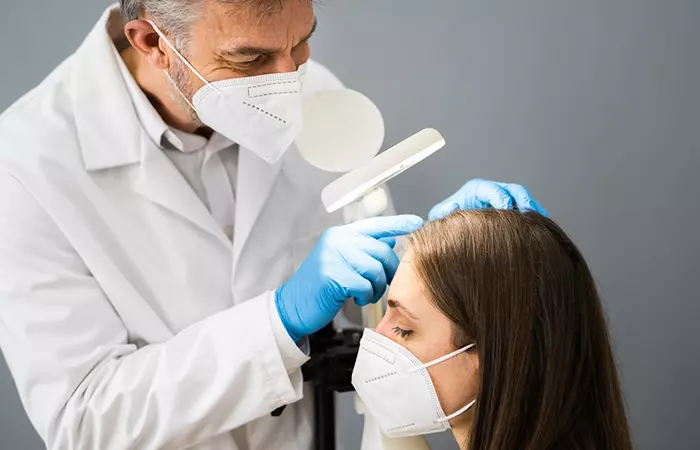
Dandruff is not a medically serious condition. However, it may point to an underlying condition with similar symptoms. Either way, consult a doctor about your dandruff if:
- It does not go away with over-the-counter solutions like anti-dandruff shampoos.
- Shampooing often is not helping.
- The itching on your scalp is getting out of control and disrupting your daily life.
- Your scalp is red, swollen, or showing open sores.
Tea tree oil has been widely used over the years to naturally treat skin conditions like dandruff. If you are looking for a scalp treatment that cleanses your head without drying or damaging your hair, tea tree oil is the way to go.
That said, this essential oil is potent and should be diluted before using. Before using this herbal remedy for dandruff removal, do a patch test on a small area. Try these time-tested strategies and let your hair down!
Infographic: Tea Tree Oil For Dandruff – DIY Recipe, Benefits, And Risks
Tea tree oil is renowned for its antifungal and antibacterial properties. These benefits make it quite effective for scalp-related issues, especially dandruff. Many anti-dandruff hair products feature it in their formulae to take advantage of these aspects. Check out the following infographic to learn more about how tea tree oil may help relieve dandruff, its risks, and steps to make an effective tea tree oil shampoo at home.

Illustration: StyleCraze Design Team
Tea tree oil is a common ingredient in many hair and skin care products, thanks to its wide range of beneficial properties. It shows strong resistance against Malassezia fungus and tackles dandruff besides reducing related symptoms like scalp itchiness and greasiness. Use a shampoo containing tea tree oil to avail its benefits against dandruff. You can also add a few drops of the oil to the bottle itself. You can also prepare tea tree oil hair masks or shampoos at your home. However, do not use tea tree oil without diluting it, and do a patch test before using it on your hair to avoid adverse effects.
Frequently Asked Questions
Can I mix aloe vera and tea tree oil for dandruff?
Yes. You can mix 3-4 drops of tea tree essential oil in five tablespoons of aloe vera gel and apply it to your scalp. The soothing effect of aloe vera and tea tree oil’s antimicrobial, antifungal, and anti-bacterial properties may help relieve dandruff.
Does tea tree oil have other benefits for the scalp or hair?
Yes. Tea tree oil has antiseptic and anti-inflammatory properties that help manage acne and fungal infections, soothe skin inflammation, and relieve psoriasisi An autoimmune skin condition that causes inflammation along with itchy, scaly patches and is triggered due to cold or stress. .
Can I dilute tea tree oil with water?
Yes, it can be diluted with water or any carrier oil.
Are there any lifestyle changes or dietary adjustments that can help prevent dandruff?
Yes, making positive lifestyle changes such as reducing stress and incorporating high protein foods such as salmon, avocados, nuts, and yogurt to your diet can help prevent dandruff.
Illustration: Simple Ways To Use Tea Tree Oil For Dandruff
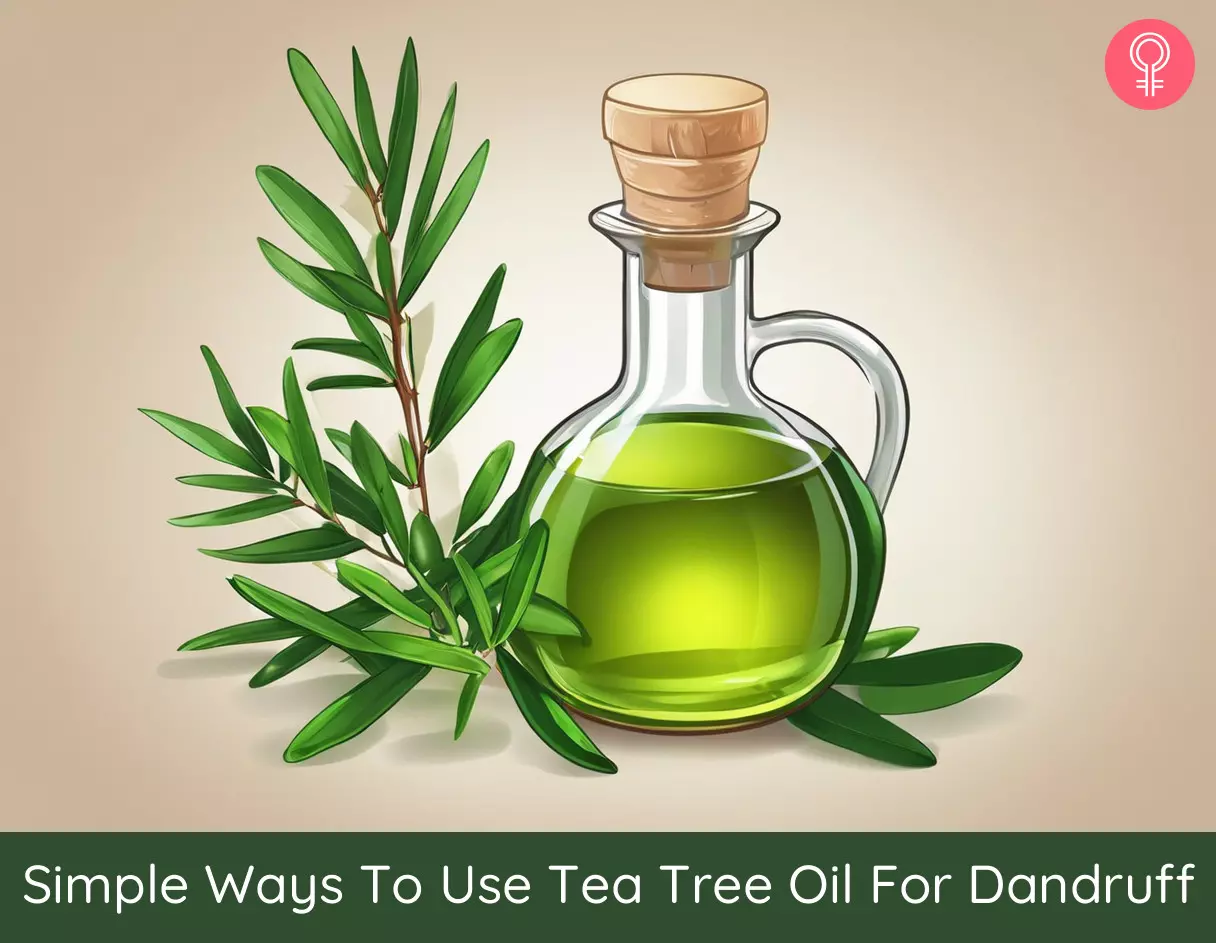
Image: Stable Diffusion/StyleCraze Design Team
Learn how to use tea tree oil to naturally treat dandruff and other scalp conditions. Discover the best ways to apply it for maximum results from the video below.
Personal Experience: Source
StyleCraze's articles are interwoven with authentic personal narratives that provide depth and resonance to our content. Below are the sources of the personal accounts referenced in this article.
i. Hair update: tea tree oil treatment and cleansing,https://www.1blessednatural.com/2013/04/hair-update-tea-tree-oil-treatment.html
References
Articles on StyleCraze are backed by verified information from peer-reviewed and academic research papers, reputed organizations, research institutions, and medical associations to ensure accuracy and relevance. Read our editorial policy to learn more.
- Treatment of Dandruff with 5% Tea Tree Oil Shampoo.
pubmed.ncbi.nlm.nih.gov/12451368/ - Activity of Tea Tree Oil and Nerolidol Alone or in Combination against Pediculus Capitis (Head Lice) and Its Eggs.
link.springer.com/article/10.1007/s00436-012-3045-0 - Tea Tree Oil:Remedy and Poison.
https://www.poison.org/articles/tea-tree-oil#: - Allergy to Tea Tree Oil: Retrospective Review of 41 Cases with Positive Patch Tests over 4.5 Years.
pubmed.ncbi.nlm.nih.gov/17535193/
Read full bio of Dr. Shruti Chavan
Read full bio of Arshiya Syeda
Read full bio of Ramona Sinha
Read full bio of Medha Deb






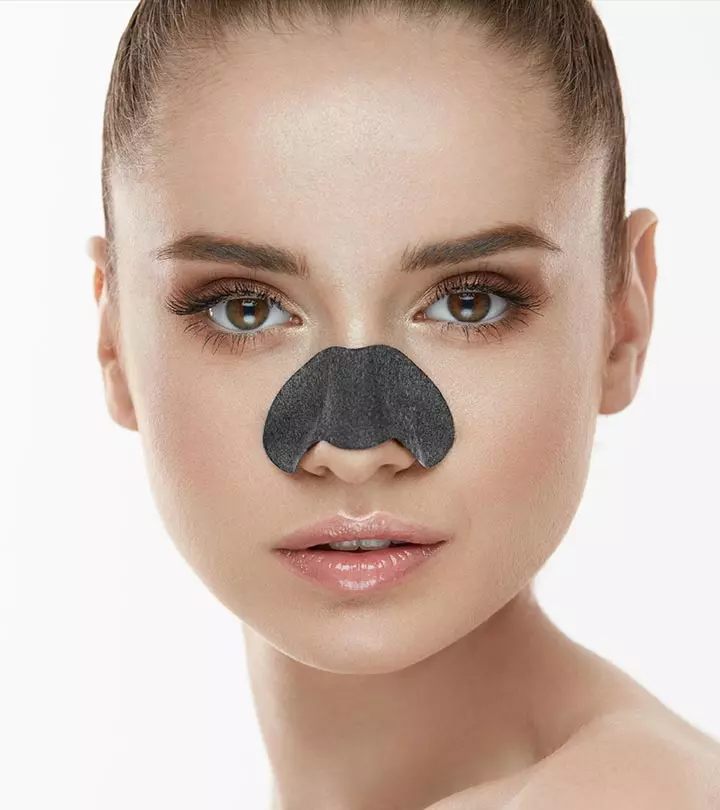
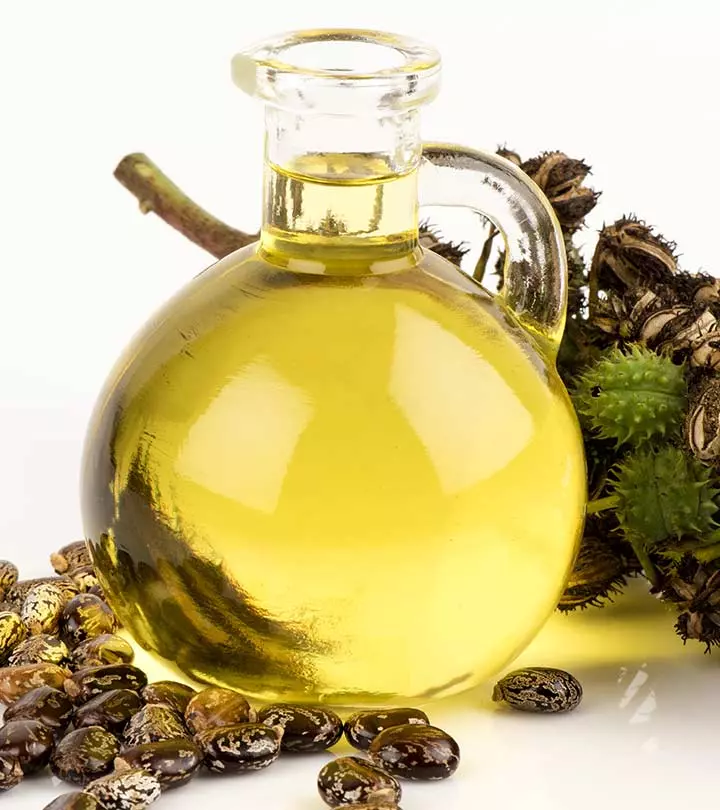
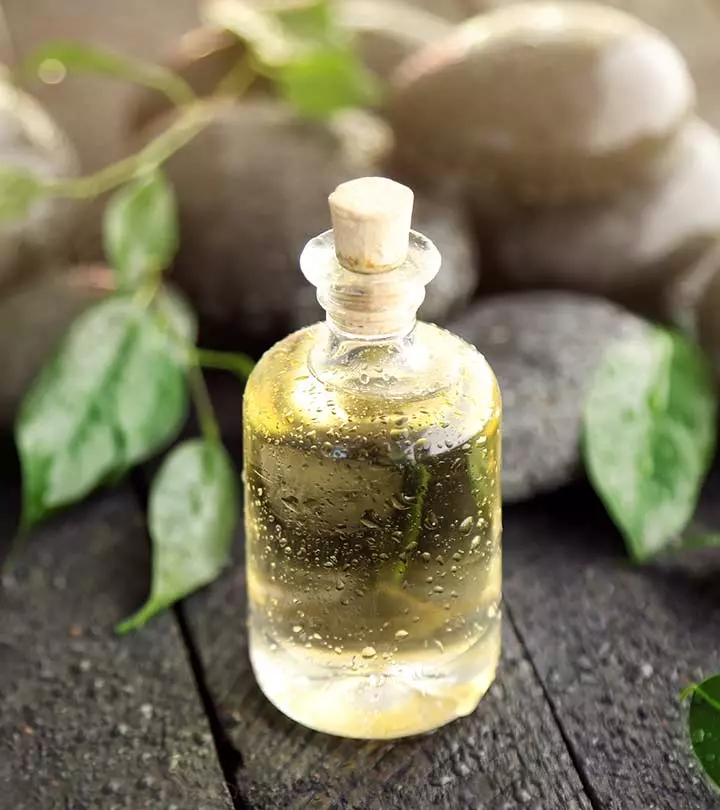
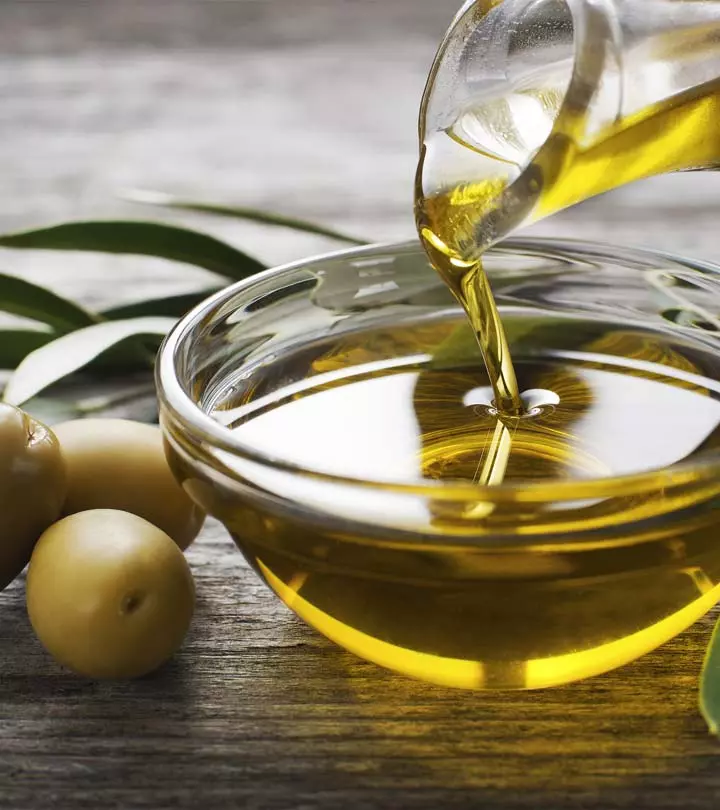
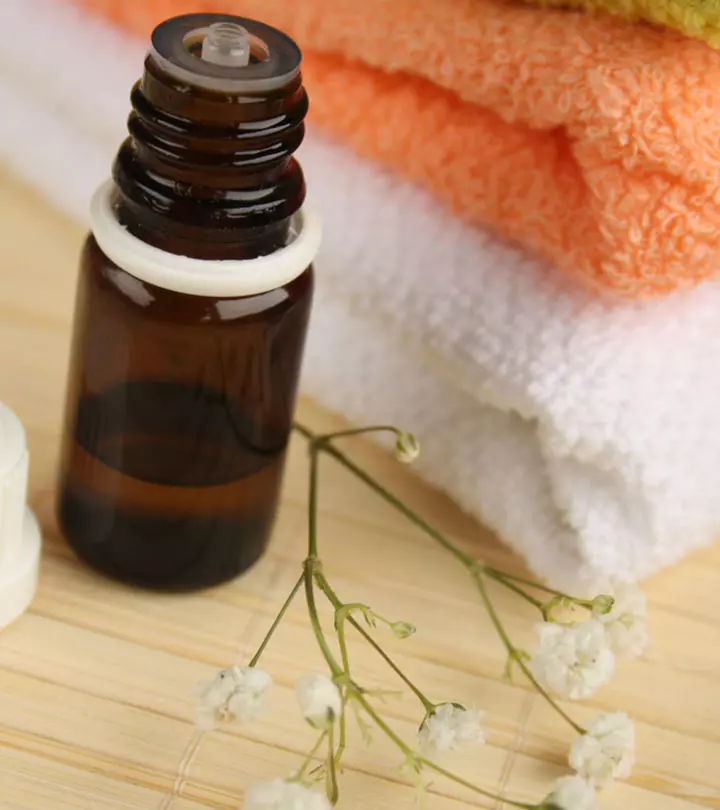
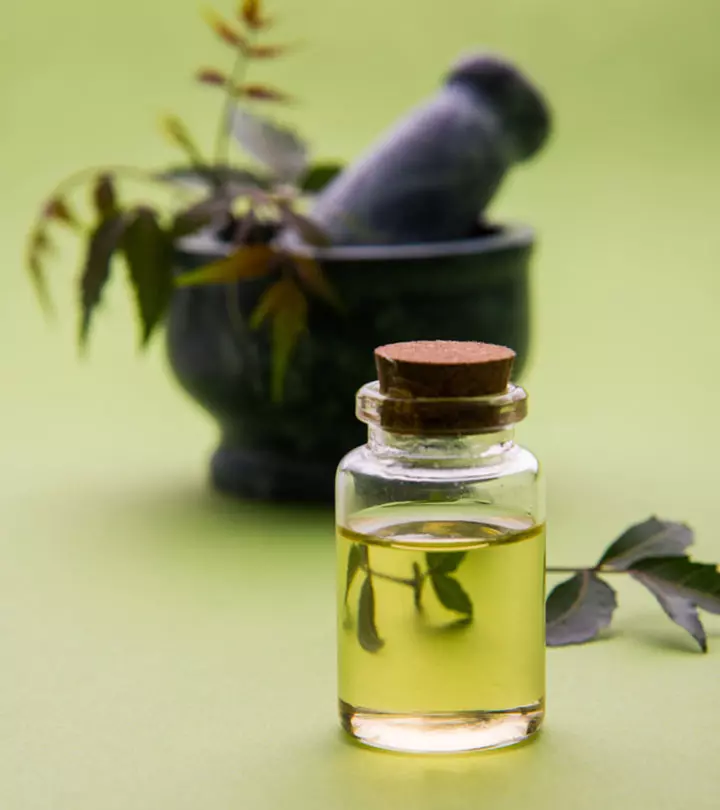
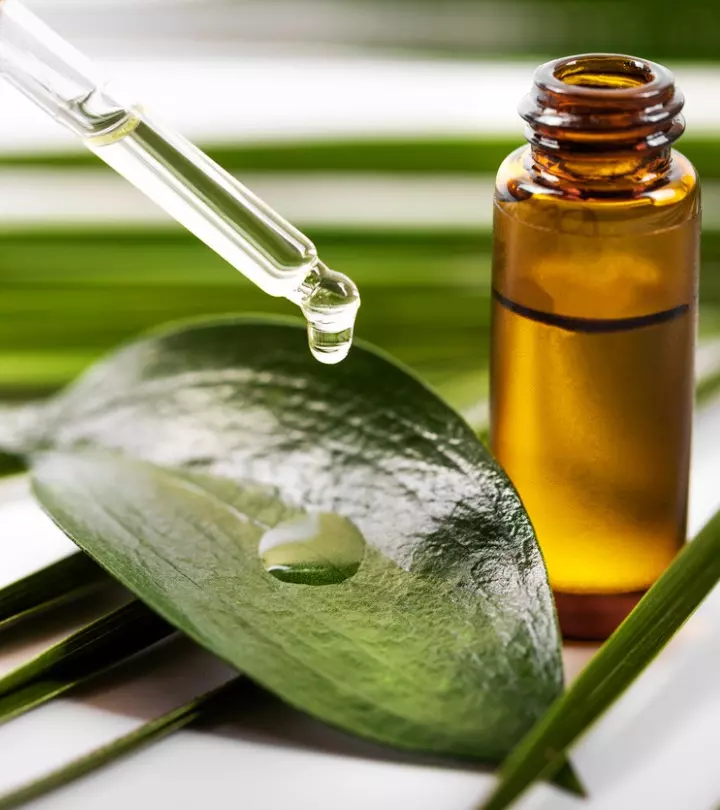
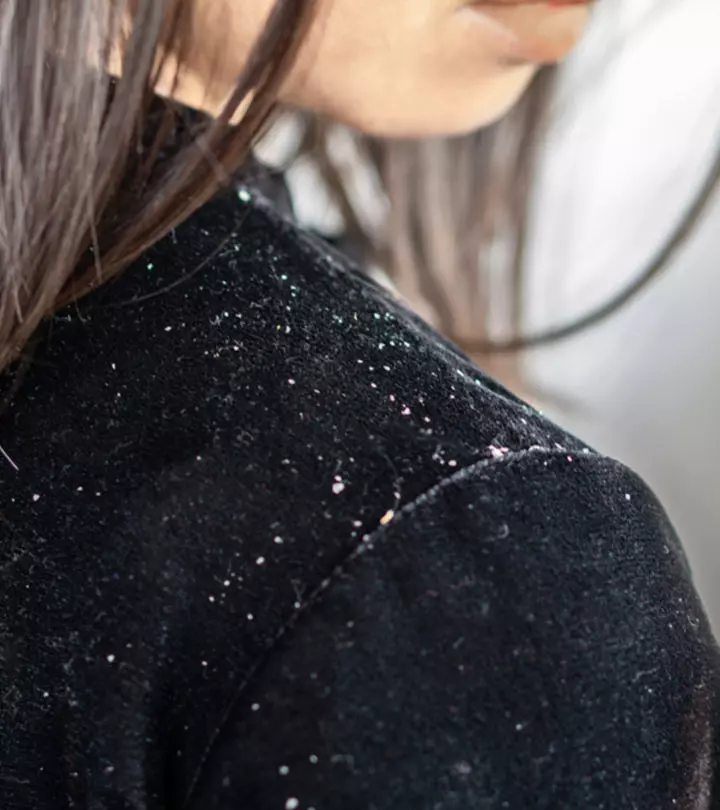
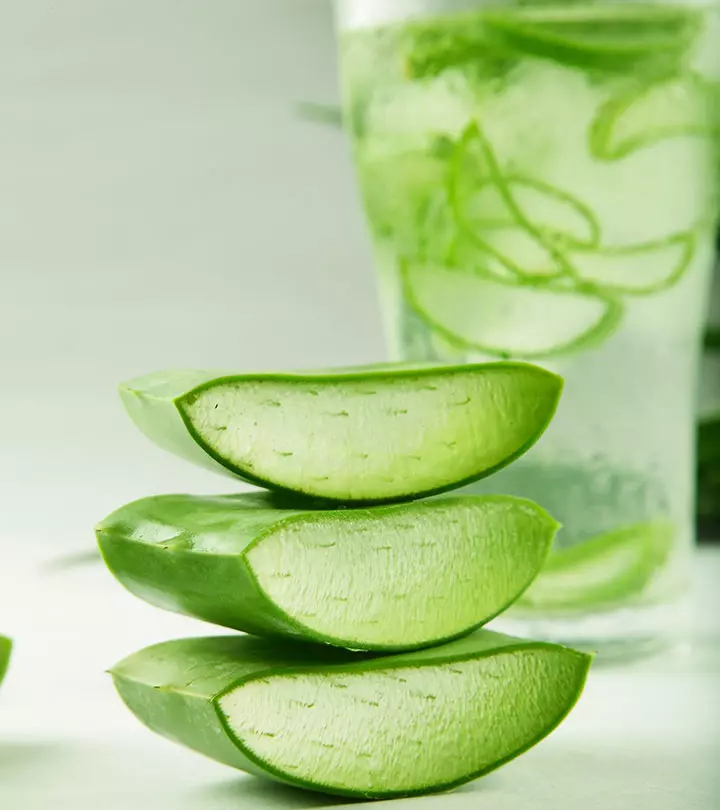
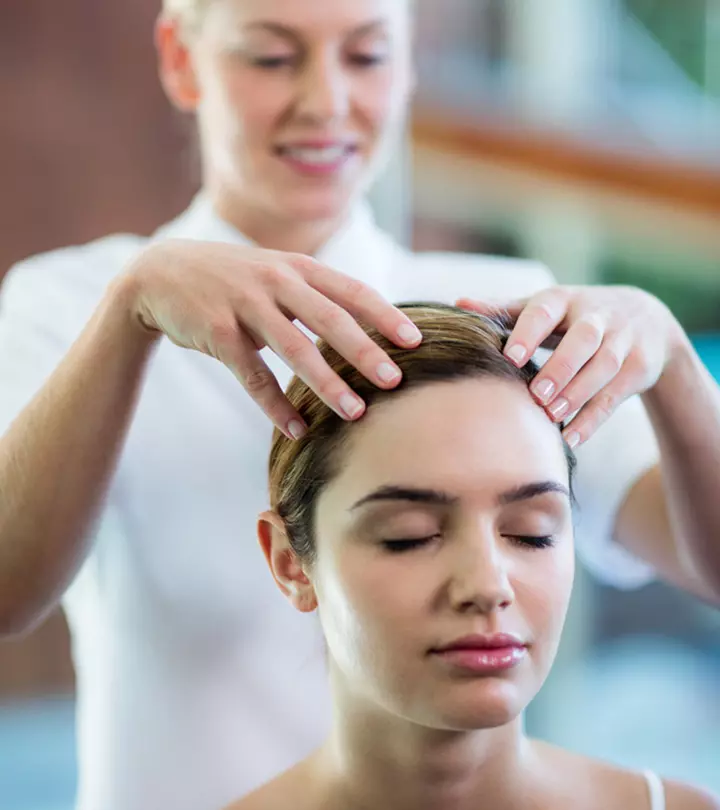
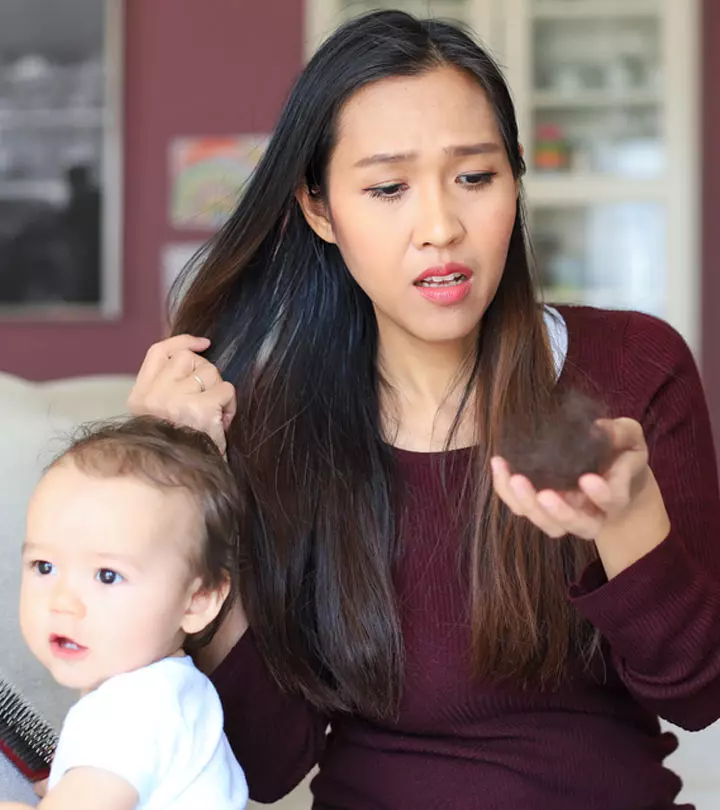
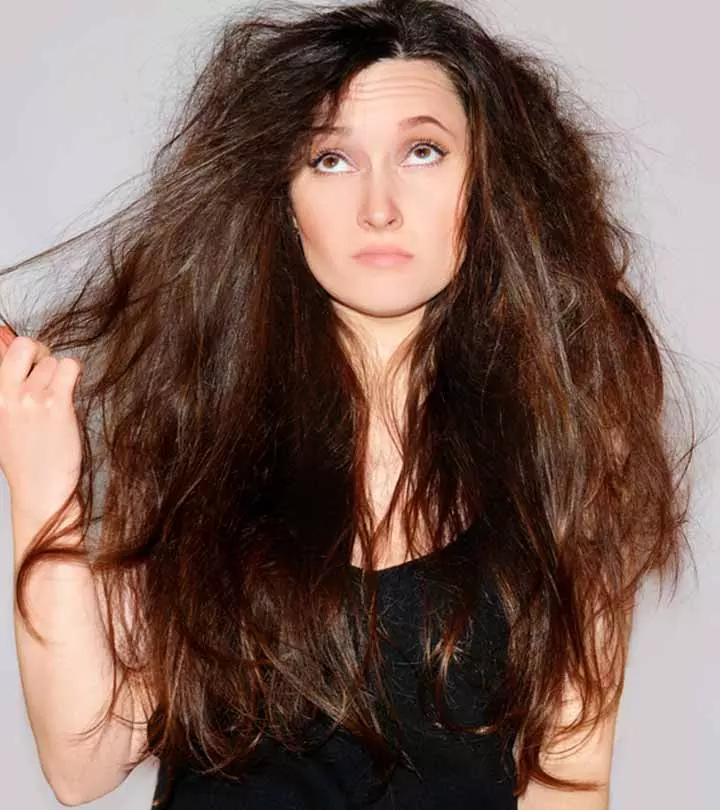
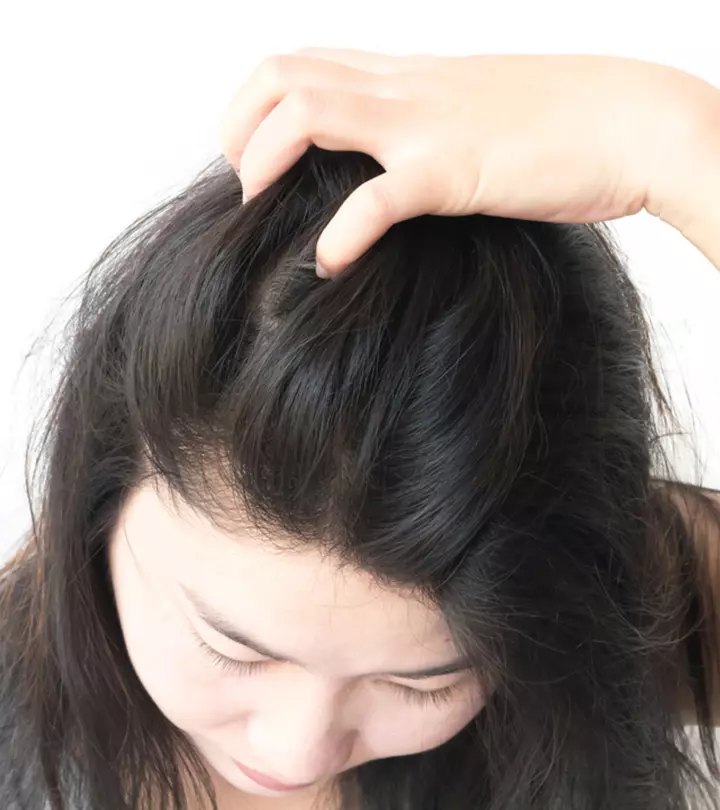
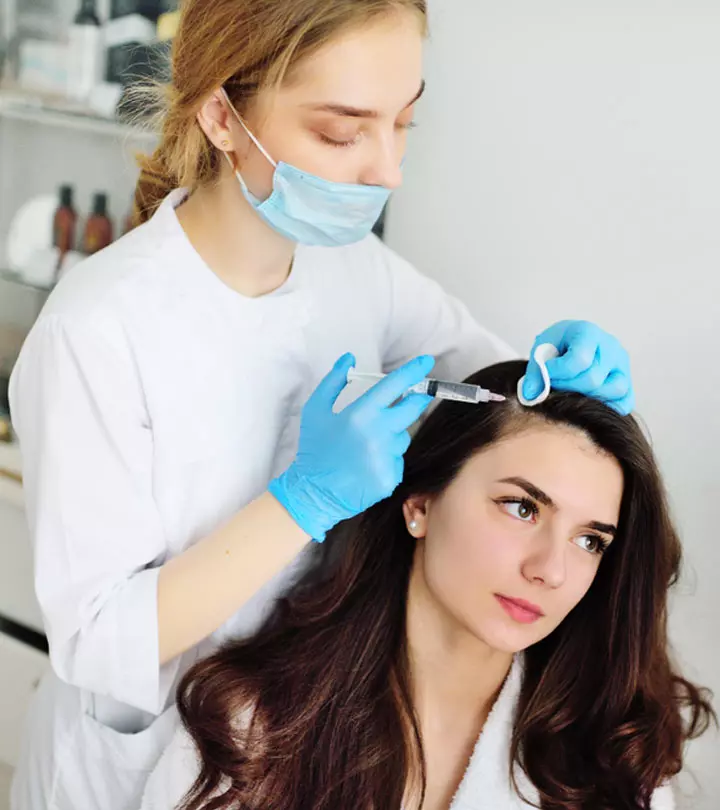
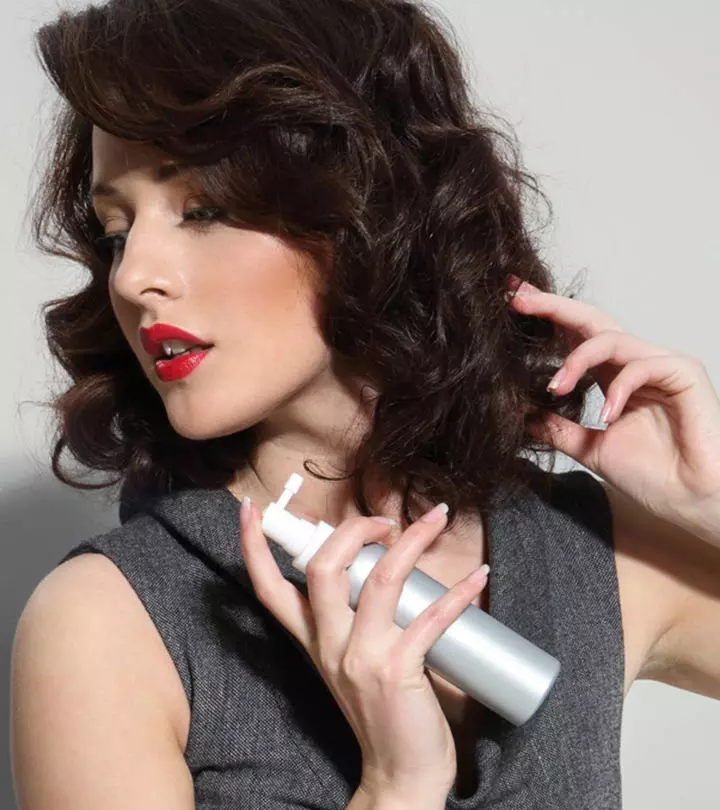
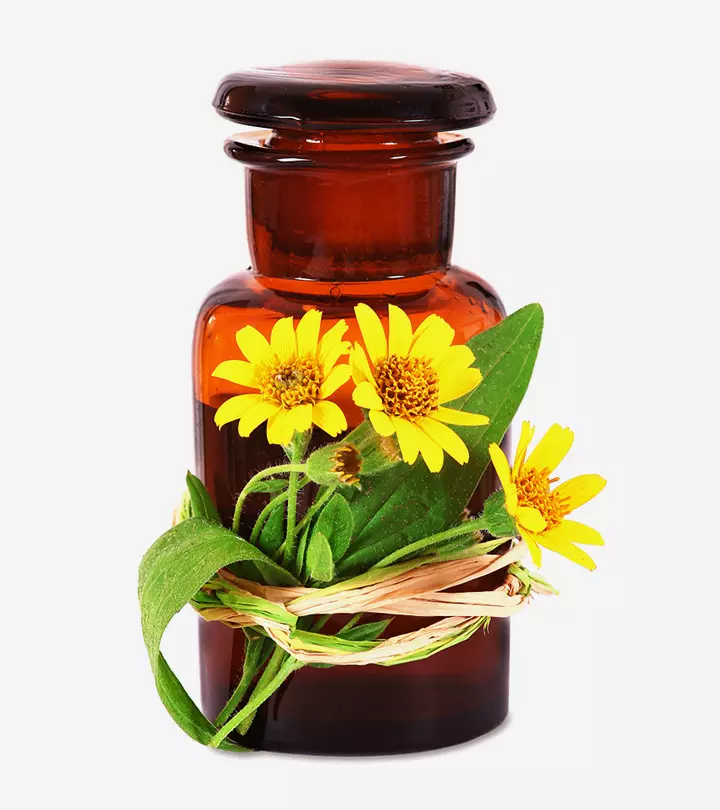
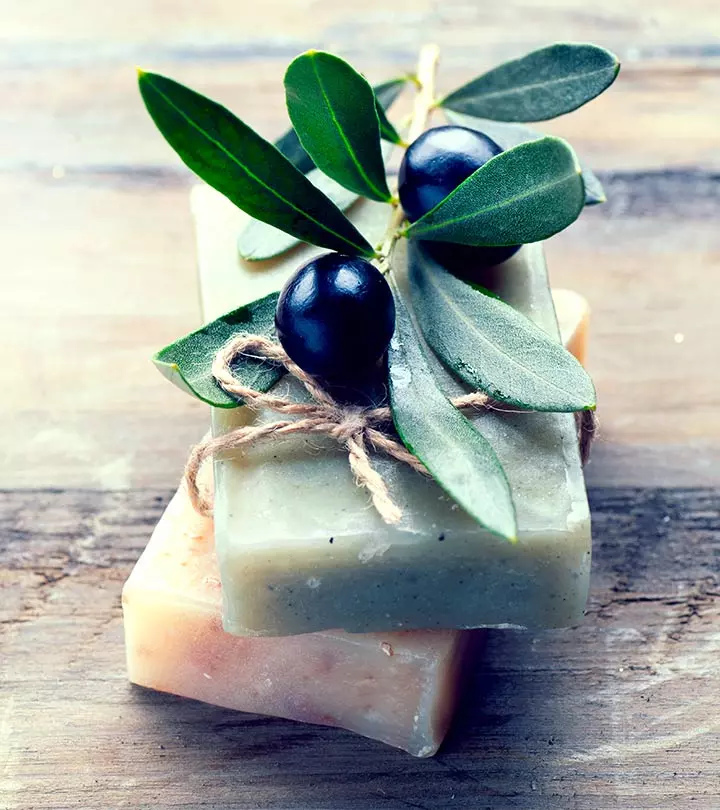
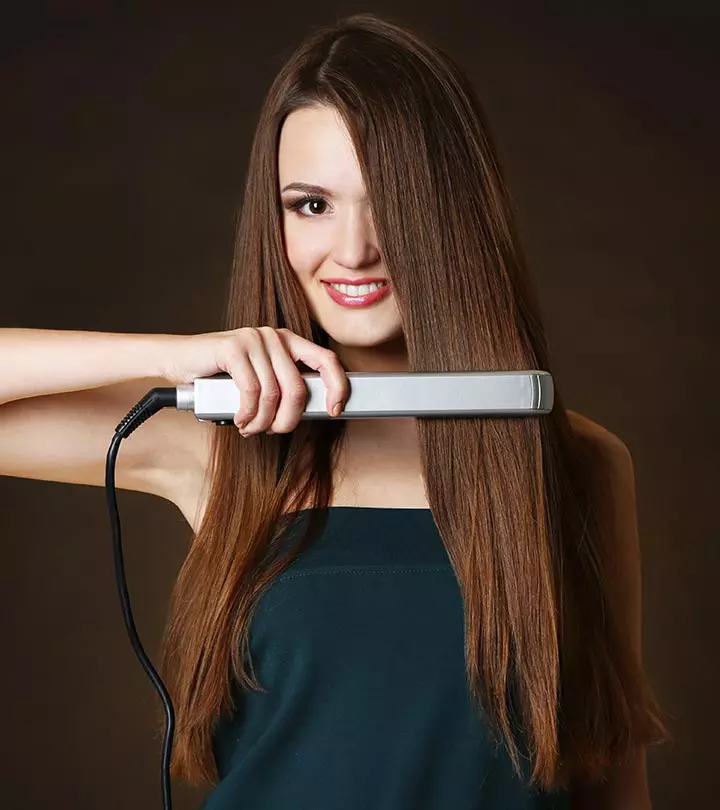


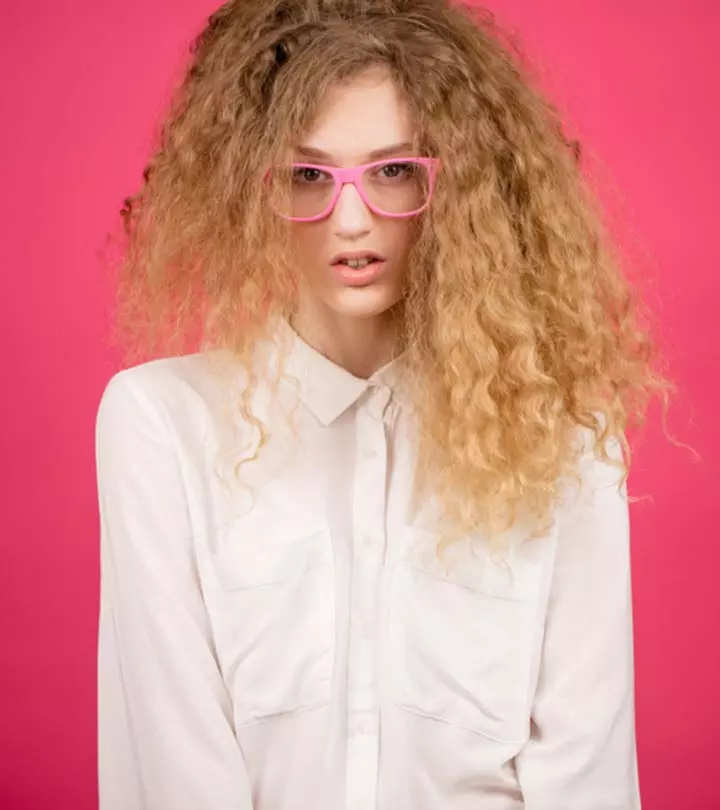
Community Experiences
Join the conversation and become a part of our empowering community! Share your stories, experiences, and insights to connect with other beauty, lifestyle, and health enthusiasts.